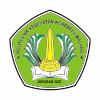Perbedaan Pengetahuan dan Sikap Sebelum dan Sesudah Penyuluhan Gizi Seimbang secara Daring di SDN Tanjungrejo 4 Kota Malang
DOI:
https://doi.org/10.31290/nj.v2i1.3356Keywords:
Counseling, Balanced Nutrition for School-Age Children, Knowledge, AttitudeAbstract
Background: Based on the results of Basic Health Research (2018), it is known that the prevalence of nutritional status of children aged 5-12 years based on Body Mass Index by age is 2.4% very thin, 6.8% thin, 10.8% fat and 9.2% obese. The problem of malnutrition in children is due to the lack of consuming foods that contain energy, high-quality protein, and minerals. In contrast, nutritional problems are caused by excessive consumption of energy, fat, sugar, and salt, but tend to consume fewer vegetables and fruits. Excessive intake of these nutrients is also accompanied by low physical activity. The purpose of this study was to determine the differences in knowledge and attitudes of school-age children before and after counseling on balanced nutrition for school-age children.
Methods: The type of research used is pre-experimental research with a One Group Pretest Posttest design. This research was conducted in October 2021 at SDN Tanjungrejo 4 Malang City. The sampling technique used was purposive sampling with a total sample of 27 school-age children.
Research Results: The mean value of respondents' knowledge before counseling was 67.59. After receiving counseling the average value of knowledge increased to 74.26. The average value of the attitude of the respondents before the counseling was 51.15. After receiving counseling the average attitude value of the respondents increased to 54.22. This shows that there is a significant difference in knowledge (p-value = 0.001 (Sig <0.05)) and attitude (p-value = 0.000 (Sig <0.05)) between before and after the balanced nutrition counseling.
Conclusion: There are differences in knowledge and attitudes of students in grades III and IV at SDN Tanjungrejo before and after counseling on balanced nutrition.
References
2. Aroni, H. (2022). Media & Teknologi Informasi Dalam Pendidikan Kesehatan. Bantul: K-Media.
3. Azinar, M., & Fibriana, A. (2019). Health Reproduction E-Booklet Multimedia Health to Improve Motivation and Knowledge at Student in Localization Areas. Advances in Social Science, Proceedings of the 5th International Conference on Physical Education, Sport, and Health (ACPES 2019), 362, 314-317.
4. Azwar, S. (2012). Sikap Manusia: Teori dan Pengukurannya. Yogyakarta: Pustaka Pelajar.
5. Briawan, D. (2016). Gizi pada Anak Usia Sekolah. Dalam Hardinsyah, & I. Supariasa, Ilmu Gizi: Teori & Aplikasi (hal. 194-208). Jakarta: EGC.
6. Google. (t.thn.). FAQ: Google Meet, Google Chat, dan Hangouts. Dipetik Juli 13, 2021, dari Support Google: https://support.google.com/a/users/answer/9845199
7. Irnani, H., & Sinaga, T. (2017). Pengaruh Pendidikan Gizi terhadap Pengetahuan, Praktik Gizi Seimbang dan Status Gizi pada Anak Sekolah Dasar. Jurnal Gizi Indonesia, 6(1), 58-64.
8. Kementerian Kesehatan RI. (2019). Laporan Nasional Riskesdas 2018. Jakarta: Badan Penelitian dan Pengembangan Kesehatan.
9. Notoatmodjo, S. (2010). Ilmu Perilaku Kesehatan. Jakarta: Rineka Cipta .
10. Notoatmodjo, S. (2012). Promosi Kesehatan dan Perilaku Kesehatan. Jakarta: Rineka Cipta.
11. Oktariani, L., Aulia, I., & Sari, R. (2021). Peningkatan Pengetahuan Perilaku Hidup Bersih dan Sehat (PHBS) Pada Ibu Rumah Tangga di Wilayah Kota Tanggerang. Syntax Idea, 3(4), 848-856.
12. Palupi, K. C., Sa'pang, M., & Swasmilaksmita, P. (2018). Edukasi Gizi Seimbang pada Anak Sekolah Dasar di Kecamatan Cilincing Jakarta Utara. Jurnal Abdimas, 5(1), 49-53.
13. Rachmat, M. (2016). Metodologi Penelitian Gizi & Kesehatan. Jakarta: EGC.
14. Sawitri, D. (2020). Penggunaan Google Meet Untuk Work From Home Di Era Pandemi Coronavirus Disease 2019 (Covid-19). Jurnal Prioritas : Jurnal Pengabdian Masyarakat, 2(1), 13-21.
15. Soekirman. (2011). Taking the Indonesian Nutrition History to Leap into Betterment of the Future Generation. Asia Pacific Journal of Clinical Nutrition, 20(3), 447-448.
16. Suiraoka, I. P., & Supariasa, I. (2012). Media Pendidikan Kesehatan. Yogyakarta: Graha Ilmu.
17. Supariasa, I. D. (2012). Pendidikan dan Konsultasi Gizi . Jakarta: EGC.
18. Susilowati, & Kuspriyanto. (2016). Gizi dalam Daur Kehidupan. Bandung: Refika Aditama.
19. Tsuraya, Z. (2020). Pengaruh Edukasi Gizi dengan Media E-Booklet Terhadap Perubahan Perilaku Makan Sesuai Pedoman Gizi Seimbang (PGS) pada Remaja Obesitas di Kota Padang Tahun 2020. Abstrak.









